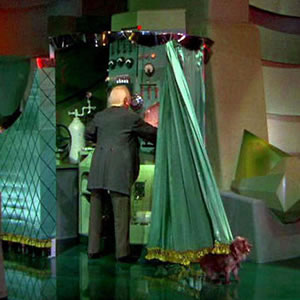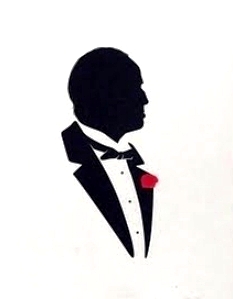It is the position of this site that control of the American people enables control of the world. While this is less the case than it was 20 years ago, even now there is no combination of powers that can challenge American hegemony on matters that effect the creation and control of wealth.
For that reason we will focus primarily upon American History, and only bring in European or other histories where they impact America.

Europe "discovers" the Western Hemisphere
And the European powers promptly launched a competition to control the wealth they identified here. Indigenous peoples and their cultures were, at best, ignored. Generally, they were exterminated, enslaved, or pushed off of any land, and away from any resources, that Europeans found a use for.
In competing with each other, the European powers emplanted their peculiar cultural, religious and economic profiles onto the sections of which they took ownership. In some cases, only a small number of colonizers carved out huge tracks of land upon which they could re-invent themselves as barons, in imitation of the landed aristocracy they so envied back home. Because the principal measure of wealth in Europe had, for centuries, been ownership and control of land, these men soon took on the mantle of the aristocracy of Europe.
It was in the areas where such 'estate agriculture' was possible, that this new aristocracy arose. All depended upon the climate for cultivation of items that could be sold in Europe in huge quantities. Sugar, in the Caribbean, Central and South America is a prime example. And tobacco -- later cotton -- in the South of North America.
The northern areas of North America, in contrast, became home for larger numbers of colonizers, many being unwelcome or unwanted population at home. Here we see small farms, towns with mechanics and merchants springing up. And we see the beginning of a mercantile class developing in the larger towns, functioning in community with the laborers and small farmers.
Almost immediately a dilemna arose: Estate agriculture ... Plantations... require a large labor pool that must be on site throughout the seasons. All attempts at enslaving indigenous people failed. The aristocratic wannabes could not re-invent the serfdom of Feudal Europe with serfs who were born on this land and knew where to hide.
Enter slavery... Specifically, men and women captured by Arabic slave traders in West Africa and sold to European -- later North American -- merchants and vessel owners. Beginning during the 1500s in the Caribbean and South America, and then in the early 1600s in Virginia, the Carolinas, and Florida, a steady flow of African people, on a massive scale, were sold as slaves to these new 'aristocrats'. African people who could not easily find a place to escape to in a strange land, and could never find there way home.
Two things should be noted:
One, in what was to become the United States, two very different economies, with different social and political cultures, arose.
In the north, many small to mid-sized farming communities, and growing cities, with free labor that could move as needed, were emerging. These cities began featuring an agressive merchant, then, later financial, class.
In the south: a static -- tied to the cycles of the land -- economy with a small number of very wealthy, educated men; an enormous number of African slaves; and a not as abundant (compared to the north) number of European settlers who competed, unsuccessfully, as a rule, in agriculture with the planters. These poorer European settlers gradually served to fill the ranks of mechanics and other needed jobs for the aristocracy, including overseeing the slave population.
Two: We see evidence of the evolution of a moral and cultural rationale for slavery -- convoluted reasoning, smoke and mirrors to aide these self-proclaimed devout Christians in explaining away the obvious evil. Primarily in the south, but not only there.
The blind spot continued with the Founding Fathers. They knew they were conceiving a nation with a genetic defect, as is evident in the writing of some of the more perceptive of them. But, they just did not know what to do, and left it to the future generations to sort out.
The sorting out started with the Civil War. WE ARE STILL SORTING OUT THE DEFECT TODAY.
With Union -- specifically Northern industrial -- victory, wealth in America would only flow from ownership of capital (and the resulting means of production): NOT from the ownership of labor and land. Labor would be rented, as needed, and then turned away as demand fluctuated. The non-stop flow of European people into America -- primarily into the cities of the north and midwest -- made sure there was a pool of labor that could be tapped, but not husbanded. The paternal character of the old South -- if ever it offered any solace to enslaved people -- was replaced by the cold hand of the market.
America transitioned from a source of raw material for Europe's industrial development, to a manufacturer and consumer of raw materials. (NOTE: This was a prime mover for the Republican movement during the Civil War... The capitalist leadership understood that they had to break the European hold on American produce (cotton, etc.), and convert American resources to American production at home).
By the 20th Century, the accumulation of wealth in the hands of a small number of American capital aristocrats had become enormous. As labor was rented, and not owned, it was simply another commodity in the marketplace. Resources were being ripped out of the land... so much so that some members of this new aristocracy (Theodore Roosevelt, for example) were troubled by what was happening to the people and commonwealth of America.
It was only after the abuse by Capital brought about the Great Depression that another Roosevelt came forward with enough influence to develop a regulatory structure that moved toward a true realization of 'Life, Liberty, and the Pursuit of Happiness' for all Americans.
His aristocratic breathren never forgave him, branding him a class traitor.
AND THEY HAVE BEEN WORKING TO UNDUE ALL HE DID FOR THE LAST 90 YEARS. Everything happening under Republican direction in US politics and our economy is focused upon undoing the New Deal. This is the single-minded goal of the men behind the curtain.
Riding Reagan to the past ... And the Democrat Party's response: Sell themselves as Republican-Lite.
In my essay, Who gets the next 15 minutes at the microphone, I outlined how the progressive leadership in the Democratic Party substituted inclusion and soft messages for hard policy action in the face of an evolving global economy.
The revived Republican Party, with their new hero, the tough-talking cowboy Reagan, extended Nixon's Southern Strategy to a series of resounding victories at the polls. The goal of returning America to captialism's Golden Age of, as
The Democrats' national leadership response was to re-invent themselves as Republican Lite. I invite you to review the tale of the Democratic Leadership Council, founded in 1985, and read the position of its think tank, the Progressive Policy Institute. https://militarist-monitor.org/profile/democratic_leadership_council/
In short, their position is summed up in their The New Progressive Declaration: A Political Philosophy for the Information Age. In it, third way leaders argue that enduring progressive values must be adapted to include uncompromising support for free market and free trade economics, a strong military with a global presence, an end to the politics of “entitlement,” a rejection of affirmative action, an embrace of competitive enterprise, and a reduction of the government’s role in development policy.
Emphasis added by me.
Their darling was Bill Clinton, as well as his wife. Barak Obama was another they championed.
And, here we are. And here, we will discuss how to look behind the curtain and call out the men hiding behind it. there is no other alternative if we wish to avoid collapse.

TOTO says ...
Some secrets that the men behind the curtain know...
One, FDR created a more fair distribution of America's wealth. However, the NEW DEAL never could end the Depression.
It was the Second World War, with the enormous spending on military goods and services, that revived the American economy.
FDR and the New Deal Democrats never could figure out a way to recalibrate and redirect Capitalism. Military spending became a crutch they and Republicans depended upon.
Two, the USA emerged as the pre-eminent Global Power. And a global economy, fueled by never-ending military spending provided American leaders a magic formula for continuing the American Dream until it became over-extended in wars and mismanagement of foreign oil dependency.
